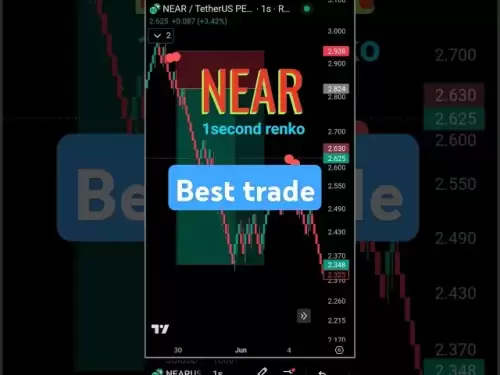-
 Bitcoin
Bitcoin $105,958.7463
-1.46% -
 Ethereum
Ethereum $2,573.9608
-5.95% -
 Tether USDt
Tether USDt $1.0005
0.05% -
 XRP
XRP $2.1553
-3.88% -
 BNB
BNB $654.7084
-1.22% -
 Solana
Solana $147.8876
-6.45% -
 USDC
USDC $0.9998
-0.01% -
 Dogecoin
Dogecoin $0.1792
-4.47% -
 TRON
TRON $0.2693
-1.95% -
 Cardano
Cardano $0.6427
-5.75% -
 Hyperliquid
Hyperliquid $41.8216
-2.22% -
 Sui
Sui $3.0698
-7.70% -
 Chainlink
Chainlink $13.5208
-6.00% -
 Bitcoin Cash
Bitcoin Cash $425.5404
-2.40% -
 UNUS SED LEO
UNUS SED LEO $9.0529
2.14% -
 Avalanche
Avalanche $19.5263
-7.32% -
 Stellar
Stellar $0.2612
-4.76% -
 Toncoin
Toncoin $3.0128
-5.29% -
 Shiba Inu
Shiba Inu $0.0...01204
-4.49% -
 Hedera
Hedera $0.1570
-6.93% -
 Litecoin
Litecoin $84.8024
-4.37% -
 Polkadot
Polkadot $3.8487
-5.06% -
 Ethena USDe
Ethena USDe $1.0004
0.00% -
 Monero
Monero $310.7189
-4.21% -
 Dai
Dai $0.9999
0.00% -
 Bitget Token
Bitget Token $4.5194
-4.07% -
 Uniswap
Uniswap $7.5602
-3.52% -
 Pepe
Pepe $0.0...01107
-8.20% -
 Aave
Aave $285.5551
-5.09% -
 Pi
Pi $0.5752
-7.61%
Ethereum Account Types and Characteristics
External Ethereum accounts, controlled by private keys, serve as the primary mode of interaction for individuals and dApp developers, enabling transactions and smart contract utilization.
Feb 21, 2025 at 12:07 am

Key Points of Ethereum Account Types and Characteristics
- Types of Ethereum Accounts: External (user-created), Contract (code-based), and System (pre-defined).
- External Accounts: Managed with private keys, own Ether, and interact with contracts.
- Contract Accounts: Created using Solidity code, execute specific functions, and can own Ether.
- System Accounts: Built-in accounts with specific roles in the Ethereum ecosystem.
Detailed Description of Ethereum Account Types
1. External Accounts
- Management: Controlled by private keys, which allow access to the account and authorization of transactions.
- Ownership: Own Ether (ETH) and ERC-20 tokens.
- Usage: Primary accounts used by individuals, businesses, and dApp developers to interact with the Ethereum network and engage in transactions and smart contract interactions.
- Example: A user creates an external account to store their ETH and interact with decentralized applications.
2. Contract Accounts
- Creation: Created by deploying Solidity code to the Ethereum network, resulting in a smart contract.
- Execution: Execute specific functions based on the smart contract's code, enabling predefined rules and logic.
- Ownership: Can own Ether directly or receive it through transactions. However, they are not controlled by a private key.
- Usage: Used to implement complex interactions, create dApps, facilitate token issuance, and automate tasks.
- Example: A developer deploys a smart contract to manage the sale and distribution of a new token.
3. System Accounts
- Pre-defined: Built into the Ethereum protocol and serve specific roles.
- Types: Include accounts for miners, developers, and the Ethereum Foundation.
- Roles: Facilitate block creation, protocol upgrades, and the deployment of smart contracts.
- Example: The miner account receives rewards for validating transactions and securing the Ethereum network.
FAQs on Ethereum Account Types
1. What is the difference between an external and a contract account?
External accounts are user-controlled and hold Ether, while contract accounts are created to execute specific functions based on predefined code.
2. Can I create multiple external accounts?
Yes, you can create multiple external accounts using different private keys.
3. How do I access my external account?
You use a hot or cold wallet to access your external account and manage your private keys.
4. What is a system account used for?
System accounts facilitate essential functions such as block creation and protocol upgrades.
5. Can contract accounts create other contracts?
Yes, contract accounts can create other contracts, known as child contracts, which inherit specific characteristics from their parent contract.
Disclaimer:info@kdj.com
The information provided is not trading advice. kdj.com does not assume any responsibility for any investments made based on the information provided in this article. Cryptocurrencies are highly volatile and it is highly recommended that you invest with caution after thorough research!
If you believe that the content used on this website infringes your copyright, please contact us immediately (info@kdj.com) and we will delete it promptly.
- Plasma Labs Raises Its XPL Token Sale Deposit Cap to $1 Billion
- 2025-06-14 00:20:12
- A new report by the World Economic Forum (WEF), titled Asset Tokenization in Financial Markets, directly references a major development involving the XRP Ledger (XRPL)
- 2025-06-14 00:20:12
- Algorand (ALGO) Awaits Confirmation Above $0.209 for Upside
- 2025-06-14 00:15:12
- SEC Chair Backs DeFi and Self-Custody – Promises Clearer Rules for Crypto and Bitcoin
- 2025-06-14 00:15:12
- Bitcoin [BTC] adoption in Kenya has surged, even in informal settlements
- 2025-06-14 00:10:12
- Hyperliquid (HYPE) token price prediction: Will it reach $100?
- 2025-06-14 00:10:12
Related knowledge
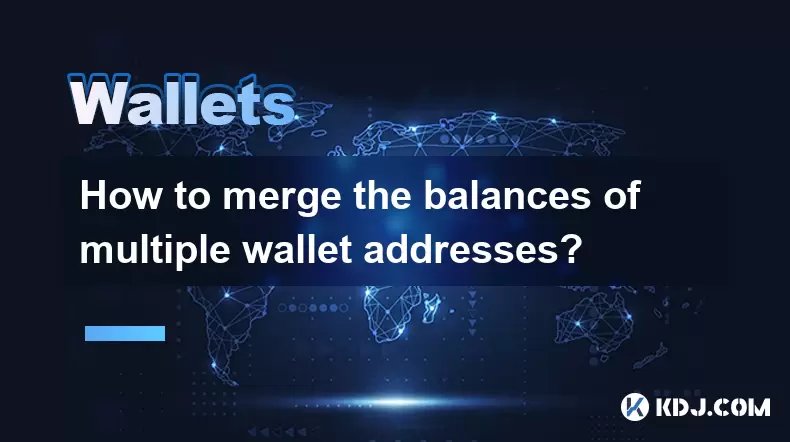
How to merge the balances of multiple wallet addresses?
Jun 13,2025 at 06:21pm
Understanding the Concept of Merging Wallet BalancesMerging the balances of multiple wallet addresses involves consolidating funds from different cryptocurrency wallets into a single address or account. This process is commonly undertaken by users who manage several wallets for security, diversification, or organizational purposes. Merging balances can ...
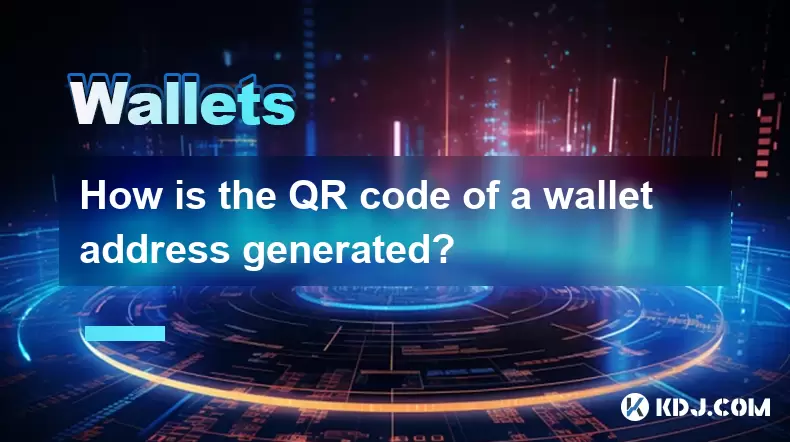
How is the QR code of a wallet address generated?
Jun 13,2025 at 10:49pm
Understanding the Basics of a Wallet AddressA wallet address is a unique identifier used in blockchain networks to send and receive cryptocurrencies. It is derived from a pair of cryptographic keys — a private key and a public key. The private key is kept secret and grants control over the funds, while the public key is used to generate the wallet addre...
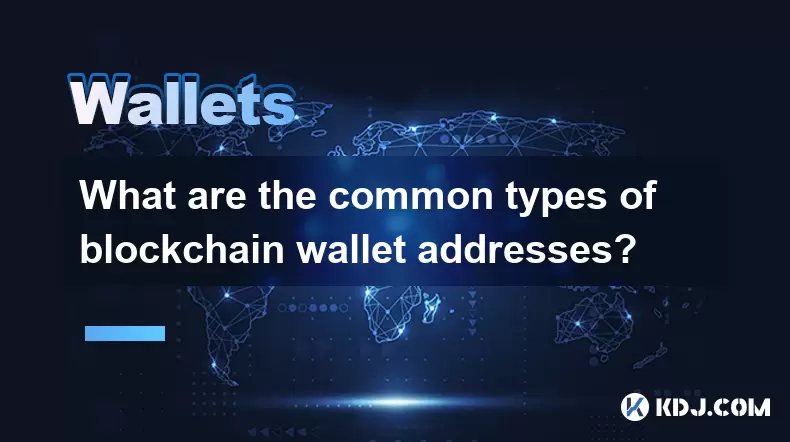
What are the common types of blockchain wallet addresses?
Jun 13,2025 at 10:56pm
What Are the Common Types of Blockchain Wallet Addresses?Blockchain wallet addresses are unique identifiers that enable users to send and receive cryptocurrencies securely. Each blockchain network has its own standards for generating these addresses, which vary in format, structure, and cryptographic algorithms. Bitcoin (BTC) Wallet AddressesBitcoin use...
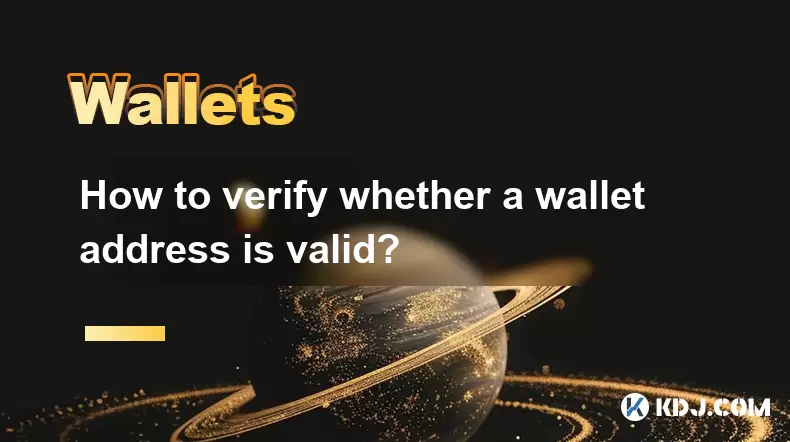
How to verify whether a wallet address is valid?
Jun 13,2025 at 05:08pm
Understanding the Basics of Wallet Address ValidationA wallet address is a unique identifier used in blockchain networks to send and receive cryptocurrency. Verifying whether a wallet address is valid is crucial for ensuring that transactions are executed correctly and securely. The validation process involves checking the structure, format, and checksu...
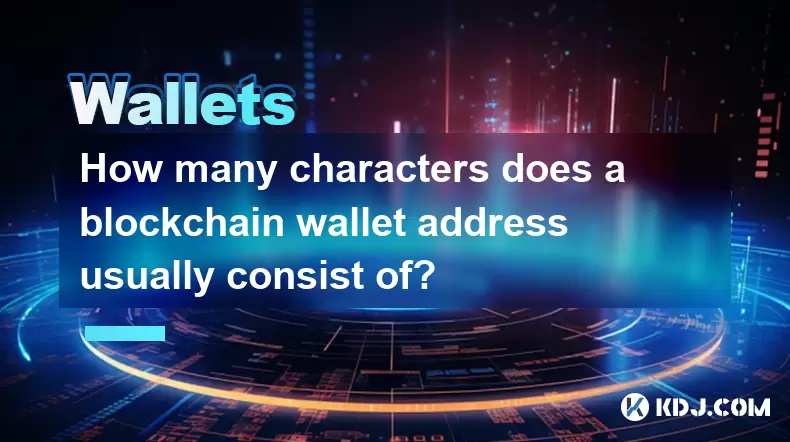
How many characters does a blockchain wallet address usually consist of?
Jun 13,2025 at 06:42pm
Understanding the Structure of a Blockchain Wallet AddressA blockchain wallet address is essentially a unique identifier used to send and receive cryptocurrencies. It functions similarly to a bank account number in traditional finance but with cryptographic underpinnings that ensure security and decentralization. The structure of these addresses varies ...
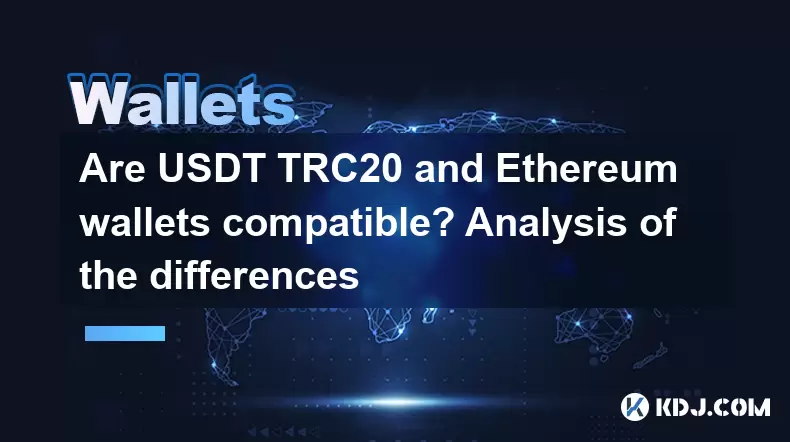
Are USDT TRC20 and Ethereum wallets compatible? Analysis of the differences
Jun 13,2025 at 05:28pm
Understanding the Fundamentals of USDT TRC20 and EthereumUSDT, or Tether, is a stablecoin that maintains a 1:1 peg with the U.S. dollar. It operates on multiple blockchain networks, including Ethereum (ERC-20) and Tron (TRC20). While both versions represent the same asset—Tether USD—their compatibility across wallets depends heavily on the underlying bl...

How to merge the balances of multiple wallet addresses?
Jun 13,2025 at 06:21pm
Understanding the Concept of Merging Wallet BalancesMerging the balances of multiple wallet addresses involves consolidating funds from different cryptocurrency wallets into a single address or account. This process is commonly undertaken by users who manage several wallets for security, diversification, or organizational purposes. Merging balances can ...

How is the QR code of a wallet address generated?
Jun 13,2025 at 10:49pm
Understanding the Basics of a Wallet AddressA wallet address is a unique identifier used in blockchain networks to send and receive cryptocurrencies. It is derived from a pair of cryptographic keys — a private key and a public key. The private key is kept secret and grants control over the funds, while the public key is used to generate the wallet addre...

What are the common types of blockchain wallet addresses?
Jun 13,2025 at 10:56pm
What Are the Common Types of Blockchain Wallet Addresses?Blockchain wallet addresses are unique identifiers that enable users to send and receive cryptocurrencies securely. Each blockchain network has its own standards for generating these addresses, which vary in format, structure, and cryptographic algorithms. Bitcoin (BTC) Wallet AddressesBitcoin use...

How to verify whether a wallet address is valid?
Jun 13,2025 at 05:08pm
Understanding the Basics of Wallet Address ValidationA wallet address is a unique identifier used in blockchain networks to send and receive cryptocurrency. Verifying whether a wallet address is valid is crucial for ensuring that transactions are executed correctly and securely. The validation process involves checking the structure, format, and checksu...

How many characters does a blockchain wallet address usually consist of?
Jun 13,2025 at 06:42pm
Understanding the Structure of a Blockchain Wallet AddressA blockchain wallet address is essentially a unique identifier used to send and receive cryptocurrencies. It functions similarly to a bank account number in traditional finance but with cryptographic underpinnings that ensure security and decentralization. The structure of these addresses varies ...

Are USDT TRC20 and Ethereum wallets compatible? Analysis of the differences
Jun 13,2025 at 05:28pm
Understanding the Fundamentals of USDT TRC20 and EthereumUSDT, or Tether, is a stablecoin that maintains a 1:1 peg with the U.S. dollar. It operates on multiple blockchain networks, including Ethereum (ERC-20) and Tron (TRC20). While both versions represent the same asset—Tether USD—their compatibility across wallets depends heavily on the underlying bl...
See all articles





















